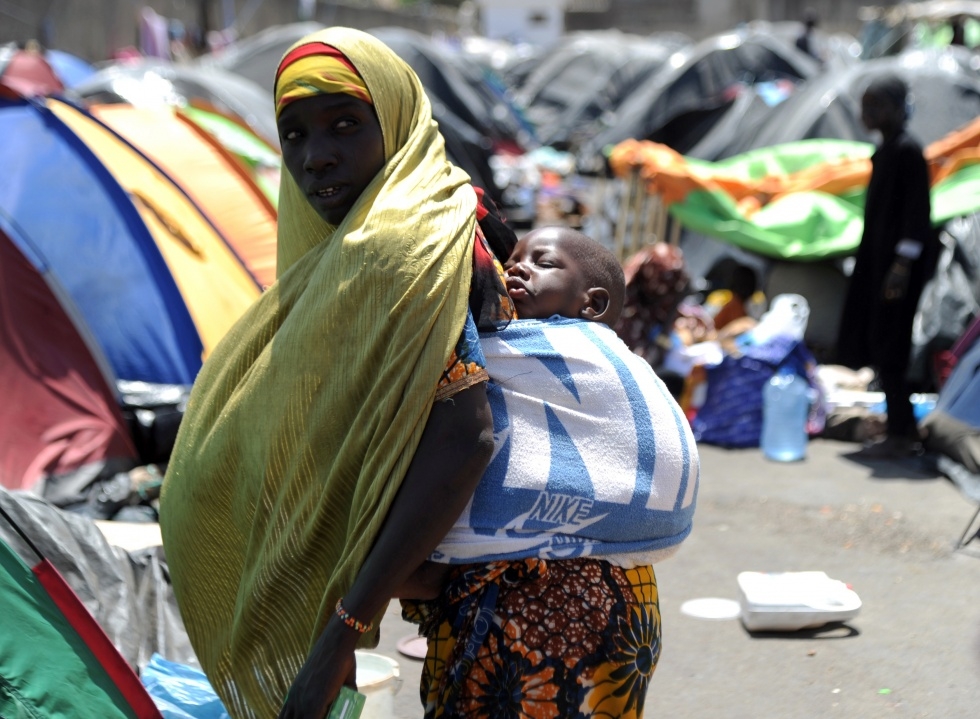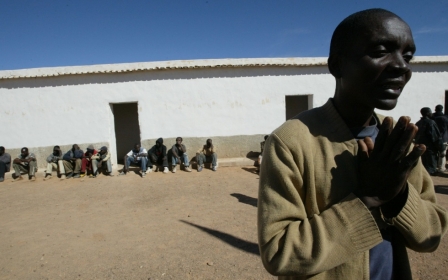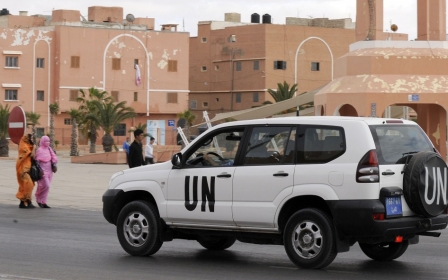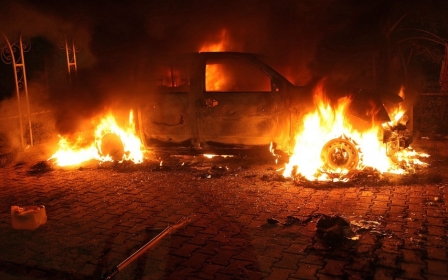In Algerian desert, death ends migrants' hopes of a better life

The Algerian desert is proving to be the tragic final destination for many African migrants desperate to reach Europe. On 4 May, 13 African migrants were found dead near Algeria’s southern border with Niger. Meanwhile, last October, more than 90 people died during a clandestine attempt to reach Algeria.
The migrants, most from sub-Saharan African countries, end up being abandoned in the inhospitable climate by their smugglers with little means for survival.
Last week, following an alert by Niger, the Algerian army forces launched a wide rescue operation, involving airborne troops, in a large desert area in the far south of the province of Tamanrasset.
By the end of the week, the media began reporting on confirmed deaths, as bodies were found. The first media reports, quoted local authorities in the region of Arlit, almost 808 kilometres north of the capital Niamey, it confirmed that: “Thirteen African migrants have been found near Algeria’s southern shared border with Niger, while 33 other persons, including women, children and men are still missing.”
Amani Mounkaila Boureima, a Nigerien reporter in the capital of Niamey, told Middle East Eye that “the Nigerien army forces also launched a rescue operation, searching to find the place of the other missing people who are presumed dead because of the harsh climate in this northern region.”
Alat Mougaskia, a representative of the Niger government in the northern town of Arlit, told MEE that no new update was given to him so far by the armed forces.
“I have no exact details so far, but all I can confirm is that a total of 13 dead people have been found,” he said.
“The first group found was composed of 11 dead bodies, about 202 kilometres north of Arlit, while I have no precise details regarding the place where the second group of two [bodies] was found.
“These African migrants died after being abandoned by the smugglers,” he confirmed, adding that “these smugglers had to abandon them as they were scared of being intercepted by both the Algerian and Nigerien patrols.”
Mohamed Goungou, a journalist in the region of Arlit, told MEE that, according to the Nigerien Consulate in the Algerian province of Tamanrasset “there were more than 30 passengers in the vehicle, which was found on the Algerian side between In-Guezzam and Tamanrasset.”
According to Goungou, there were 16 survivors, eight dead and seven other missing people.”
This information was also confirmed by an anonymous Algerian security source, who told a press agency that “the decomposed dead bodies were discovered by local nomads in In-Guezzam near the border with Niger before alerting the army troops.”
There has been no official comment from the Algerian authorities on both the rescue operation and the dead bodies found on the Algerian side of the border.
A humanitarian problem
Wolde-Gabriel Saugeron, a spokesperson for The International Committee of the Red Cross (ICRC), told MEE that the ICRC is increasingly concerned about the migrants' plight.
“We are very concerned about the plight of migrants along various migratory routes where they can become vulnerable at many stages of their journeys,” he said. “They often face serious difficulties that can affect their physical as well as psychological wellbeing.”
Saugeron explained that “In the Sahel region, the ICRC, together with National Red Cross and Red Crescent Societies, works at addressing the needs of vulnerable migrants, especially in areas affected by conflicts or other situations of violence.”
For this reason, in 2011, the Red Cross Society of Niger set up a centre in Agadez, with the support from the ICRC. So far this year, the centre has provided aid for more than 1,100 people. It also helped 7,000 migrants in 2013, who received more than 19,000 meals, as well as medical aid provided by the medical staff of the French Red Cross, which treated more than 2,000 injured and sick migrants.
“At the centre, migrants can contact their families and are offered shelter, hot meals and medical treatment. They are also given other basic essentials, such as hygiene products," says Saugeron.
“Our concern is to address the humanitarian consequences of migration and we do not get involved in either encouraging or preventing migration,” he added.
Desperate plight of the migrant
This is a problem that is only set to get worse, as conflict and violence affect the sub-Saharan region, forcing many to seek a better life. Last week, Spanish authorities said that around 700 African migrants charged its border fences in the country's North African enclave of Melilla before being repulsed by Spanish and Moroccan border guards.
And on 11 May, the Libyan government reported that “at least 40 people died while 51 others were rescued after a boat sank off Libya’s coast east of the capital Tripoli.” While only last week, the BBC’s Thomas Fessy reported that “thousands of African migrants are stuck in the Nigerian town of Agadez - the gateway to the Sahara - as they battle to fulfil their dream of reaching Europe.”
The Italian authorities say that 25,000 migrants landed on their coasts during the first four months of 2014, a tenfold increase on last year’s figures.
New MEE newsletter: Jerusalem Dispatch
Sign up to get the latest insights and analysis on Israel-Palestine, alongside Turkey Unpacked and other MEE newsletters
Middle East Eye delivers independent and unrivalled coverage and analysis of the Middle East, North Africa and beyond. To learn more about republishing this content and the associated fees, please fill out this form. More about MEE can be found here.




